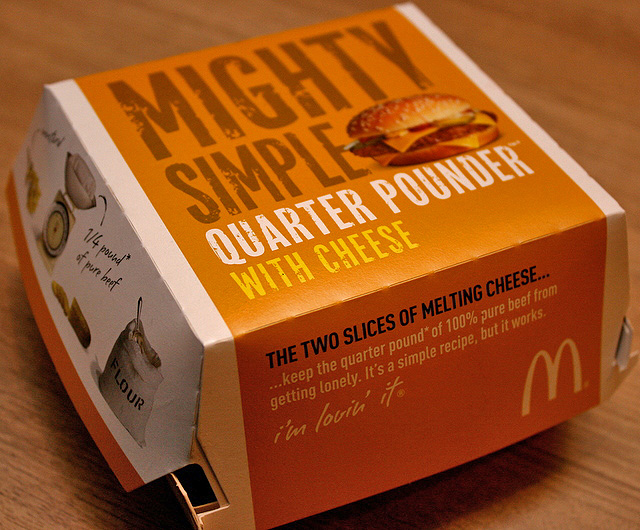It’s impossible for me to hear the name Bill Nye in any setting without having this primal urge to finish the household limerick with the rest that seems to come naturally– “the science guy” – and always to the proper tune. Along with the tune always comes a rush of nostalgia for my childhood and I remember the intense excitement that I had whenever the show aired. It was one of my favorites, to be sure, and the only show that I watched on PBS. For me, and like-minded others in my generation, Bill Nye had done the impossible – he had made science actually cool.
For those unfamiliar with Nye’s work, he is nearly infamous for his long-running program, “Bill Nye the Science Guy.” The program ran in the mid-90’s and was geared to preteens. Each of the 100-episode series was aimed at a specific topic in the realm of science. Topics ranged from the more conceptual “Space” and “Time” to the much more personal, “Smell” and “Garbage”. Regardless of the material, Nye had a way about him that made the topic understandable – and funny! His skillful balance of education and humor has landed him 19 Emmy awards.

For years, I watched Nye’s show on PBS and it inspired me to perform his experiments on my own time, after school. The educational aspects of his show, incorporated with the funny asides shaped my passion for science. Not only was this a program that I followed mindlessly – it challenged its viewers and only gave answers to complicated problems after commercial breaks. Bill Nye, the host himself, seemed approachable and had a way of making difficult concepts accessible to all children.
Just watch this clip while Bill explains the Earth’s atmosphere and see if you don’t laugh at his exaggerated style of lecturing.
So what makes Bill Nye a public intellectual? Simple, his biography from his personal website seems to do a good job of summing up his mission:
 “[…]to help foster a scientifically literate society, to help people everywhere understand and appreciate the science that makes our world work.”
“[…]to help foster a scientifically literate society, to help people everywhere understand and appreciate the science that makes our world work.”
Textbook intellectual stuff here.
Herein lies the heart of this blog. As long as (quasi)educated people exist, there are those who will try to change the world around them, many for the better. But in the thickets, there also lies a rivaling foe – collective apathy. It’s inescapable, and has consumed many a household.
In my experience, Nye has found a way to make his viewers care about his subject matter. And I think it was an important step for him in developing his career into a public intellectual. Nye’s aim is lofty, but realistic – he doesn’t aim to change the way American’s live their lives. If they happen to, so be it, but his aim is to spread awareness of the science that dominates our lives, whether we like it or not.
I would consider myself somewhat of a left-brained individual. While I often stare at the ceiling before I fall asleep, thinking of what life could possibly mean – what our very existence is indicative of – I also like to revel in cold, hard facts. Facts make me feel safe. You can’t argue facts. One of the facts that I’ve (slowly) come to terms with is that people don’t like to be told what to do, especially by someone who they don’t know or trust. It makes sense, but the critical flaw that I see when it comes to logical, smart public intellectuals who fail, is that they aren’t very approachable, and further, not very likeable.
 Nye has more recently engaged himself in the Global Warming debate that has become somewhat of a spectacle in the news since 2006. That isn’t to say the meteorologists and scientists don’t truly care or believe in their message. News media has certainly played up the debate, as the constant feud between the “believers” and the “skeptics” has a tendency to become heated debate (Pun intended). Nye appears frequently on news programs providing overwhelming evidence for global warming and asserting that it is in fact happening. Check out this clip from his guest appearance on FoxNews, where he takes on Joe Bastardi, AccuWeather forecaster.
Nye has more recently engaged himself in the Global Warming debate that has become somewhat of a spectacle in the news since 2006. That isn’t to say the meteorologists and scientists don’t truly care or believe in their message. News media has certainly played up the debate, as the constant feud between the “believers” and the “skeptics” has a tendency to become heated debate (Pun intended). Nye appears frequently on news programs providing overwhelming evidence for global warming and asserting that it is in fact happening. Check out this clip from his guest appearance on FoxNews, where he takes on Joe Bastardi, AccuWeather forecaster.
What really shouts out to me is Nye’s calm and collected manner. When Bastardi seems to get worked up over the way the data is analyzed, Nye keeps his cool and waits for O’Reilly to calm down Bastardi. And when Nye disagrees he seems to be able to control his urges to shout over Bastardi. For me, facts aside, I find myself enjoying the easy-going nature of Nye more than Bastardi based on charisma alone. Not only do I loathe Bastardi for disagreeing with my childhood hero, but I desperately want to sit him down and force him to learn some debate etiquette.
Perhaps I am unfairly biased, poisoned by my own childhood – doomed, it seems, to see the “Science Guy” as a blessed individual, who by some grace of God harnessed the ability to make science as interesting to kids as a schoolyard game of kickball (My other great elementary school passion). Perhaps Bill Nye can do no wrong in my mind, but even that reflects the simple psychology of the human being. I like Bill Nye because I trust him. He taught me things when I was young and let me into his world of science. Now, as an adult, I can’t help but listen to him when he appears on the news as a “Public Intellectual”.
This brings me to my next point. Do we, as a society, need public intellectuals? Do they serve any real purpose, besides the highly decorated levels of entertainment on news stations? Do they exist just to garner their 15 minutes of fame, to stroke their own egos and tell reassure themselves that they weren’t nerds in high school?
Yes – and no. The invention of the public intellectual is a symptom of a shrinking world. As individuals we have access to every imaginable viewpoint on any given subject matter that exists… in the world. The most popular ideas, which don’t always represent the most accurate, spread like a contagion. The fact that any individual has the potential to rise to a position whereby they can produce ideas that infiltrate the homes across continents and bodies of water is somewhat intoxicating to some, I’m sure.
Collective wisdom is the idea that inside the human race there exists a singular body of knowledge. It is possible and communicable only through the advent of language. Ideas flow from one person to the next. Some ideas, like fading memories, flicker like a bright flame and burn themselves out. Some bits of knowledge don’t ever catch and will die immediately. And then there are those ideas that spread like wildfire. Ideas that scare or that inspire, and every great while they will change the perception of status quo. Einstein changed the status quo when he relayed his ideas of relativity and space-time. Ghandi changed the status quo when he demonstrated the power of non-violent resistance.

Public intellectuals foster a single purpose, when it comes to the collective wisdom that fills our homes, our society – our earth. Their role is to poke and prod the body of collective wisdom so that we, as a society, may decide our fate. Ideas will infiltrate our minds thousands of times a day, millions of times in a lifetime, but only the good ones stick. Each idea starts with a single person, and the strength of that idea is immediately associated not only with the idea itself, but also with the person representing it.
The successful public intellectual doesn’t necessarily change the status quo with their idea, but they, by factual evidence or by charisma, make society think twice. It doesn’t matter if the idea catches or not – it’s that every idea that is created has the potential to.
Makes you feel kinda small, huh?









